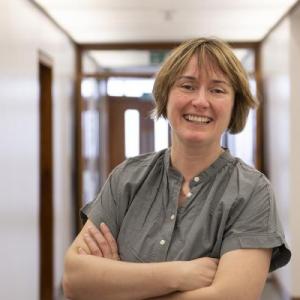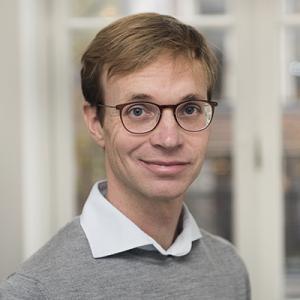Short description:
Dr Hibist Kassa is an expert on feminist political economy who completed her doctorate in the University of Johannesburg in 2019. Hibist is a Research Associate at the Centre for African Studies and Chair in Land and Democracy in South Africa at the University of Cape Town. She was a post-doctoral research fellow at the Southern Centre for Inequality Studies at the University of Witwatersrand. She has also been an Executive Committee member of Development Alternatives with Women in a New Era (DAWN). She is currently Policy Interface Fellow at the University of Leicester, United Kingdom.
Short description:
Dr Foley, Editor in Chief of Renewable and Sustainable Energy Reviews is a Reader and Advisor of Studies with the School of Mechanical and Aerospace Engineering in Queen’s University Belfast. She has a h-index of 20 (Scopus), 18 (Web of Science) and 23 (Google Scholar). She is a member of the Editorial Board of Elsevier’s Renewable Energy and the Editorial Panel of the Institution of Civil Engineers Proceedings in Transport. She is a Chartered Engineer and a Fellow of Engineers Ireland and a Fellow of the UK Higher Education Authority and a member of the IEEE Vehicular Technology Society (VTS) and Power Energy Society (PES). She has a BE(Hons) (1996) (Civil & Environmental Engineering) and a PhD (2011) (Energy Engineering) from University College Cork and an MSc (1999) (Transportation Engineering) from Trinity College Dublin. Dr Foley returned to full-time academia in 2009 after 12 years in industry, since then she has accessed more than €3 million in research. Her work is truly interdisciplinary and driven by societal needs and challenges. Her research focuses on wind forecasting, wind power integration, power and gas systems and transport electrification.
Short description:
I am an associate professor of Environmental Planning and Management at IHE Delft. My current work is on water-related transformation pathways in periurban areas, on participatory and stakeholder-oriented planning tools for delta planning, and on methods that improve linkages between planning-implementation-and-evaluation as part of adaptive learning . I combine my position at IHE Delft with a position at Delft University of Technology.
Short description:
Dr. Jiang is a staff water and environmental economist at IHE Delft Institute for Water Education in the Netherlands. He previously also worked as senior researcher, assistant professor, and consultant across academia, government agencies, and international organizations including VU University Amsterdam, Michigan State University, the National Science Foundation of the U.S., and the World Bank. Trained as an applied economist with a Ph.D. degree in Environmental and Natural Resource Economics, Dr Jiang has background in both science and engineering as well by formal educational training. He has rich experience working at the interface of science, economics and policy, and most of his research work involves quantitative economic modelling and integrated approach to environmental and natural resource management and policy in a multidisciplinary setting. Previous research activities encompass climate change and policy, weather and food security, land use policy, conservation biology, water resource management, integrated assessment of agricultural and environmental policy, and environmental valuation. His scholarly research work has led to publications in leading peer-reviewed professional journals such as Ecological Economics, Environmental and Resource Economics, Journal of Environmental Economics and Policy, Environmental Science and Policy, and Journal of Environmental Management.
At IHE Delft, Dr Jiang coordinates and teaches water economics, and contributes economics lectures to other courses across master of science programs, such as IWRM as a tool for adaptation to climate adaptation, strategic delta and river basin planning, and wetlands for livelihood. He has delivered many capacity building workshops abroad mainly in eastern African countries on ecosystem services assessment and economic valuation. In addition, Dr Jiang also mentors graduate student research in water, climate change, and agriculture and environment related issues in developing countries. His recent interest is to explore policy and management innovations and capacity building to bridge the finance sector and the water and environment sector promoting the achievement of SDGs.
Short description:
Brian Holland is an internationally recognized expert in the design and implementation of urban and workforce development policies and initiatives. He identifies trends and facilitates strategic approaches for TANF and WIOA coordination and integrated service delivery for underserved populations. Other previous positions held include: Deputy Director, Workforce Development, DC Department of Employment Services; Executive Director, National Workforce Development Agency in the Cayman Islands; Senior Manager, JBS International and Deloitte & Touche; Regional Director, Strategic Partnerships LLC; and Assistant Vice President for National Community Reinvestment Act compliance at Citigroup. He has also had extensive consulting experience in workforce development across the United States and is currently on the roster of On-Call Experts at Eurofound, UNDP, ILO and the World Bank. He is an Adjunct Lecturer at American University's School of Public Affairs and has previously taught at Columbia University, Johns Hopkins University and the USDA Graduate School, was a Visiting Fellow at the Urban Institute and was designated in 2018 as a Fellow at the Global Labor Organization. With diverse educational backgrounds in political philosophy (BA, New York University), public policy and urban planning (MPA and MS, Columbia University), he has published academic articles and conceptual framework pieces, including a set of urban policy typologies and an employability index as an alternative outcomes framework for workforce development. These analyses and perspectives have been cited by researchers and used by practitioners in the United States and internationally.
Short description:
Peter Emmanuel Cookey has spent over 25 years in the practice and study of water and sanitation management in developing countries at various levels in the public and private sectors, and 18 years teaching core sanitation and environmental health (students and workers) and conducting research, particularly on governance, technology, public health in the cities and coastal areas of the Niger Delta, Nigeria and southern Thailand. He initiated, organized and manage the EarthWatch Conference on Water and Sanitation and the Nigerian Water and Sanitation Forum from 2002 – 2013 when he proceeded for further studies abroad. In 2007-2009, he was a member of the National Technical Committee that developed national Environmental Management System (TC-EMS) for the Standard Organization of Nigeria (SON). From 2007 – 2010, he served as Secretary, Technical Committee of the Iriebe Master Plan Development for Rivers State Government, Rivers State Government, Nigeria and the Sector Leader for Water Resources, Sanitation and Waste Management. During this time, he was also a member of the Greater Port Harcourt Development Master Plan Technical Committee and served as Secretary of the Sub-committees on Water Resources and Waste Management. In addition (2007-2011), he was the Steering Committee Member representing Anglophone African Countries, Water Supply and Sanitation Collaborative Council (WSSCC), administered, Geneva and from 2012-2015 he was re-elected to represent Middle, Northern and West African Countries; and also a pioneer member of the International Standard Development Committee (ISDC) of the Alliance for Water Stewardship (AWS) that developed the global water stewardship standard. From 2009-2012, Peter facilitated and co-chaired the Port Harcourt Urban Water Supply and Sanitation Sector Reforms and the Rivers State Water Supply, Sanitation and Hygiene Policy and Legislation with the Rivers State Ministry of Water Resources and Rural Development, Nigeria.
Peter obtained a bachelor in environmental health from the Rivers State College of Health Science and Technology, a higher diploma in physiology and pharmacology and a postgraduate diploma in environmental microbiology from the University of Port Harcourt, Nigeria. In 2003, he got an MSc in environmental management from the Imo State, Nigeria and a double Master of Science degree from the IHE, Delft, Netherlands (Environmental Science with specialization in Environmental Technology for Sustainable Development) and the Asian Institute of Technology, Thailand (Environmental Engineering Management); which led to a PhD in environmental management (2013-2015) in the Prince of Songkla University, Thailand. In 2009, he obtained a Certificate (Governance in Urban Sanitation), United Nations Institute for Training and Research (UNITAR). During 2015-2018, he was a postdoc researcher at the Asian Institute of Technology, Thailand where he worked with Professors Polprasert and Koottatep on the revision of the fourth edition of the IWA published book ‘Organic Waste Recycling, Treatment, Management and Sustainability’ and also co-authored with them the upcoming IWA book ‘Regenerative Sanitation: New Paradigm for Sanitation 4.0’. Peter research interests include lake basin governance and management, public health risks assessment on onsite (decentralized) sanitation, sanitation governance, sanitation for the base-of-the-pyramid and hard-to-reach-areas, etc. He is a recognized reviewer for over 12 journals on Elsevier, Springer, Wiley, MDPI, etc.





